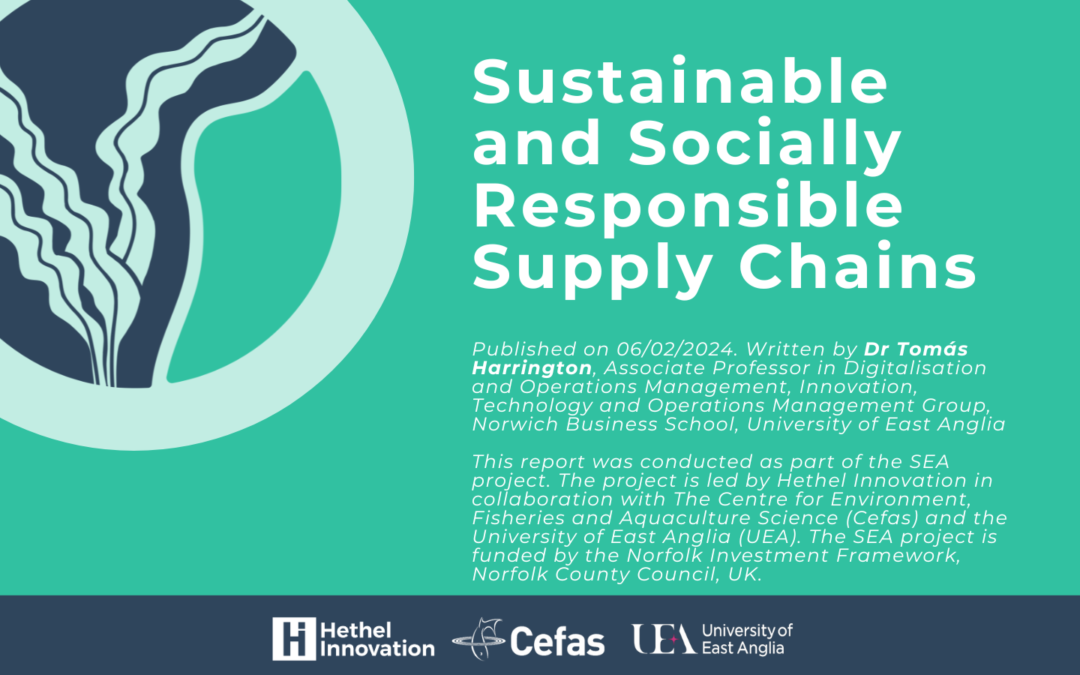Published on 06/02/2024. Written by Dr Tomás Harrington, Associate Professor in Digitalisation and Operations Management, Innovation, Technology and Operations Management Group, Norwich Business School, University of East Anglia.
This report was conducted as part of the SEA project. The project is led by Hethel Innovation in collaboration with The Centre for Environment, Fisheries and Aquaculture Science (Cefas) and the University of East Anglia (UEA). The SEA project is funded by the Norfolk Investment Framework, Norfolk County Council, UK.
The link to the PDF version of the report can be found here.
Executive Summary
Supply chain scholarship has adopted an expanded view of supply ‘networks to include non-firm actors, who can influence innovation processes and outcomes.
- The nature of future collaborations between industry players, academia, the local community, regulatory bodies, and local/regional government will play a critical role in the development of competitive and socially responsible seaweed supply chains;
Research suggests that many promising operational initiatives will fail to proceed to the implementation stage because value chain benefits accruing may not be effectively (or correctly) evaluated from an ‘end-to-end’ supply chain perspective;
- One potential mechanism in building and evaluating socially responsible operating models is through the development of sector-specific ‘design rules’;
Nascent ideas, with high novelty, will require more ‘networked collaborations’ to collectively minimise risk and promote resilience; the seaweed sector should aim to involve all citizens in developing new science and innovations and to understand consumer behaviours;
- From a demand perspective – action research approaches and methods for ‘inclusive participation’, that can involve local innovation systems in the scaling of any appropriate solutions, are recommended;
- From a demand perspective – a better understanding of consumer preferences and behaviours to inform product and place choices is also recommended;
A vision of an innovation ecosystem in the East of England (incorporating supply and demand perspectives) is presented; follow-on funding should support R&D capability building (including the establishment of a local/regional seaweed nursery), the development of process technology (‘agile’ biorefinery equipment), and supporting infrastructure (‘digitally enabled’ supply chains);
- A work programme is proposed which could form the basis of the SEA project (Part II).
This work has been possible thanks to the Norfolk Investment Framework, Norfolk County Council.


